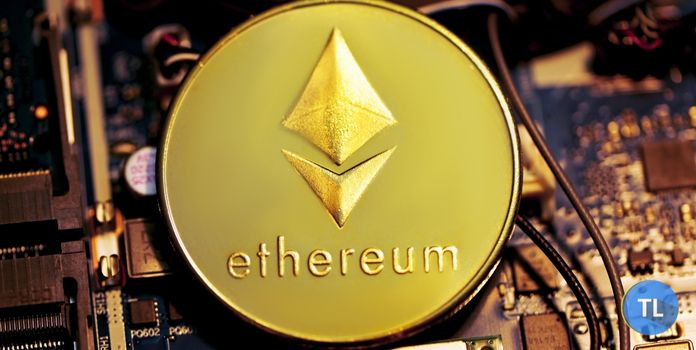Those unfamiliar with blockchain are likely to have heard of Bitcoin, the cryptocurrency and payment system that employs this technology. Some analysts believe that another blockchain-based platform, Ethereum, may eclipse Bitcoin this year.

Table of Contents
What Exactly is Ethereum?
Ethereum is a free and open-source public service that leverages blockchain technology to enable smart contracts and safe cryptocurrency exchange without the involvement of third parties. Next, you need to know what does Ethereum do? Ethereum offers two types of accounts: external real estate accounts and contract accounts. Ethereum enables developers to create a wide range of decentralized apps. Although Bitcoin remains the most popular cryptocurrency, many believe that Ethereum’s rapid development may soon replace Bitcoin in usage.
Bitcoin vs. Ethereum:
Bitcoin is utilized primarily as virtual money and value storage. Ether also functions as virtual money and value storage. However, the decentralized Ethereum network allows users to create and execute apps, smart contracts, and other transactions on the system. These functionalities are not available in Bitcoin. Ethereum also handles transactions more quickly. Finally, the amount of possible Ether tokens is unbounded, whereas Bitcoin will not issue more than 21 million coins. There are presently 19 million Bitcoin coins in circulation. After understanding what is etc cryptocurrency you will get to know how they are better than bitcoins.
Advantages of Ethereum Decentralized Platform:
There are certain benefits to adopting the Ethereum blockchain. They are as follows:
Smart Contracts That are Automated:
Smart contracts are automated digital agreement that permits users to transact anything of value in exchange for a fee under specified circumstances. It may be money, property, business stock, gold, or anything else!
High-Security Protocols:
Compared to older systems with Ethereum, a slew of blockchain security protocols can create a more secure platform. Conventional networks are typically incapable of dealing with the growing cyber threats. As a result, most businesses fail to secure their essential data from the bad guys. However, Ethereum has the potential to alter the environment in this regard. The network employs some cryptographic hashing to secure and encrypt every piece of data.
Network size:
The Ethereum main net demonstrates the viability of a network with hundreds of nodes and millions of users. Most business blockchain rivals run networks with less than ten nodes, which is unprecedented for a massive and profitable network. The scale of the network is vital for corporate collaborations that want to expand beyond a few nodes.
Liquidity:
One of the primary reasons people are to Ethereum is because it is one of the most liquid cryptocurrencies, allowing for rapid and easy trading.
Volatility:
According to Analytics Insight, volatility in the Ethereum market may be beneficial since knowledgeable investors may recognize trends and profit from volatility.
EVM (Ethereum Virtual Machine):
The EVM is a relatively complicated concept. EVM is a hardware and software correlation technology that allows smart contracts to get implemented. From any machine (computer) connected to the Ethereum network, this virtual machine can run the untrusted software inside the smart contract. A smart contract verifies the transaction when the requirement is satisfied.
Finality:
A blockchain’s consensus process provides that the transaction record is tamper-proof and classical. Ethereum provides customizable consensus techniques for various corporate network instances, ensuring instant transaction finality and reducing the infrastructure required for the proof-of-work process.
